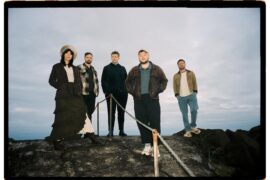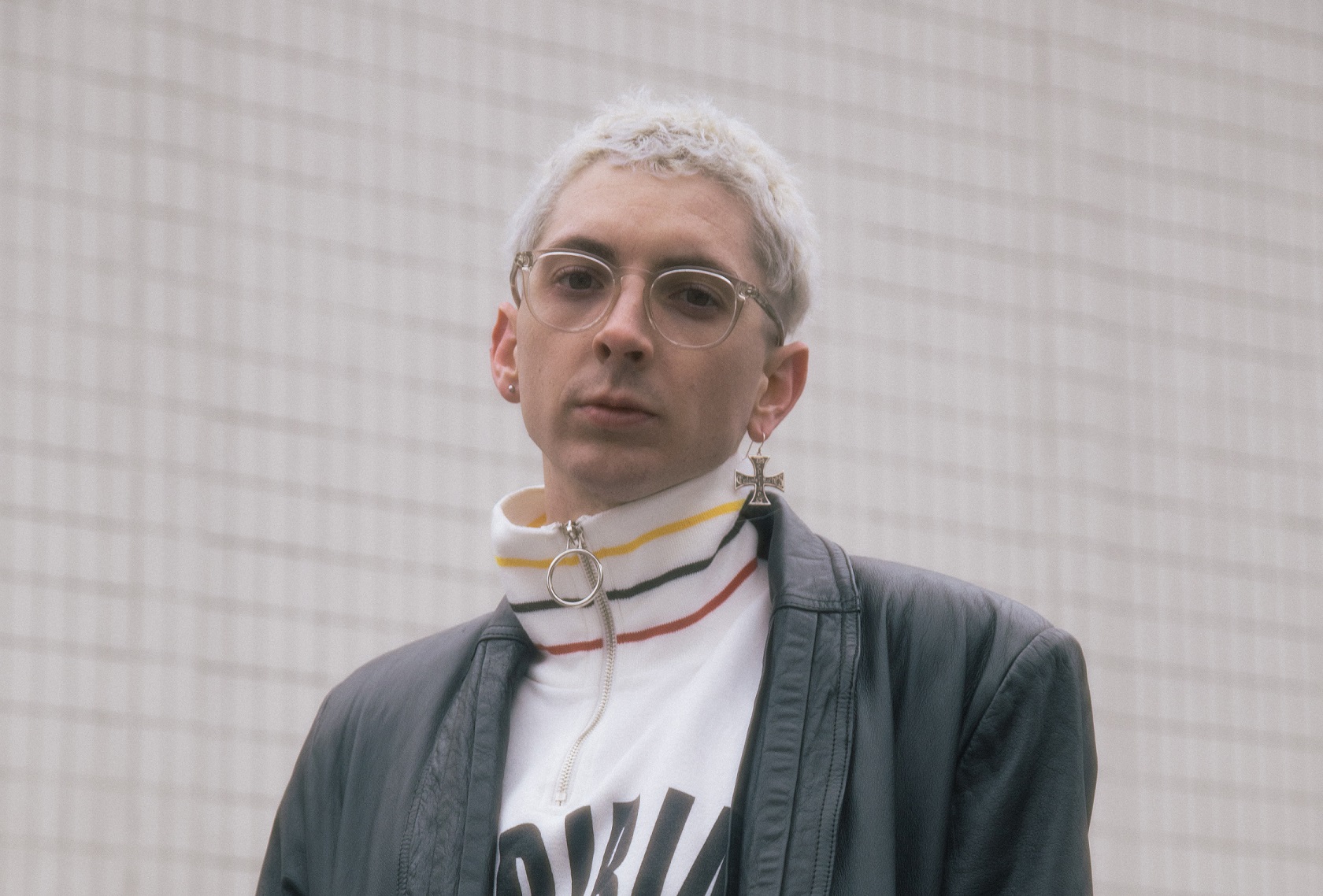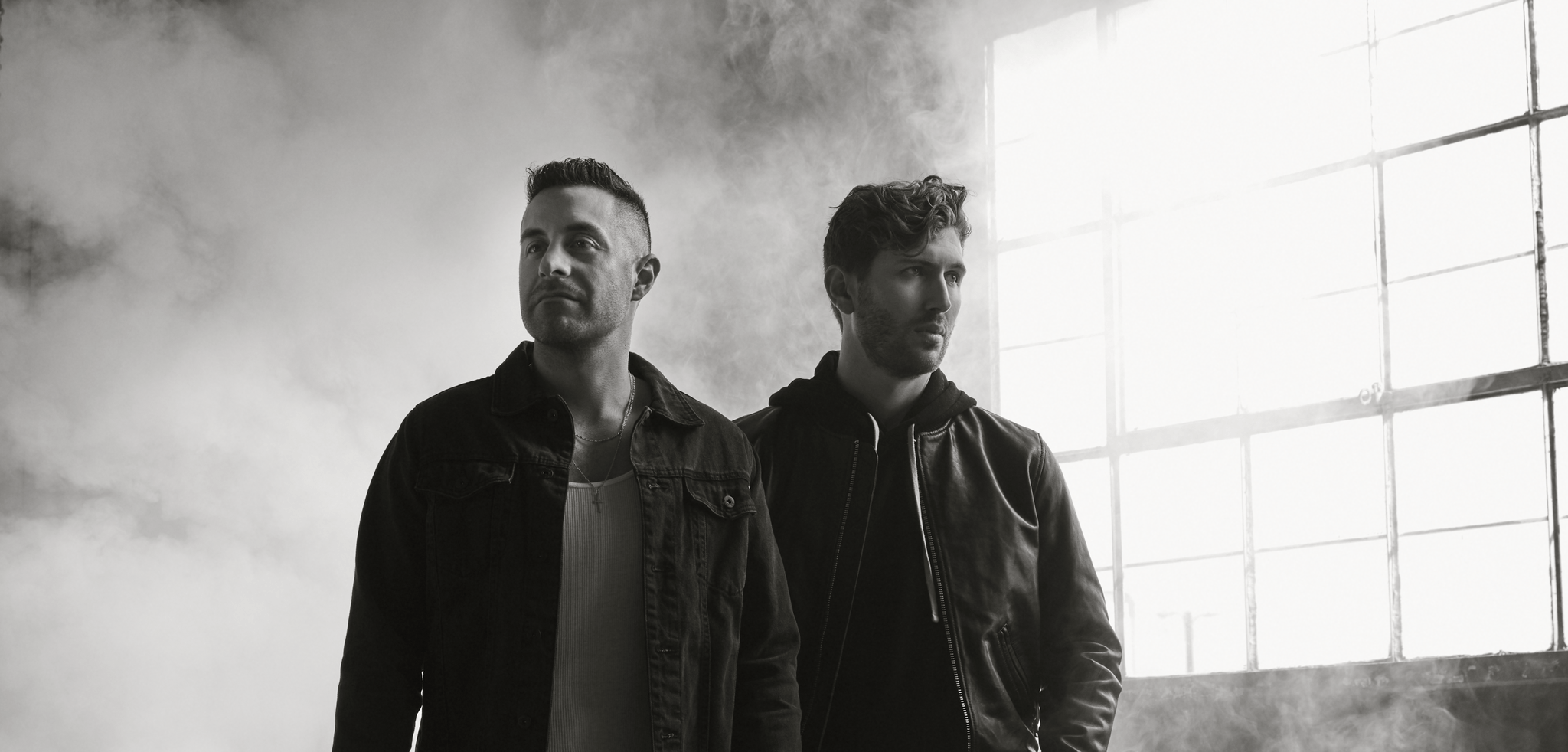With the release of her debut record, ‘Multitudes,’ Alisa Amador celebrates the fragments of herself that she painstakingly pieced together to form this beautiful portrait of who she is today. Teeming with compassion for the human experience, the project is one marked by Amador’s luminary spirit and artistic prowess.
Stream: ‘Multitudes’ – Alisa Amador
Identity and wondering where I fit in the world is definitely a big thread through everything that I write and live.
Alisa Amador is an artist who comes preceded by her reputation — one of kindness, humility and a genuine care for both herself and her fellow human.
Amador is a ray of sunlight personified; unafraid to cast her warm glow on the rest of the world.
Amador’s debut record, Multitudes, released June 7, 2024 via Thirty Tigers, is a testament to her steadfast dedication to creating a safe space for people to come as they are. Ever the nurturer, this project is as much an ode to others as it is to Amador herself. Giving herself permission to sit in imperfections — both personal and musical — Amador has created 12 tracks that strive to embrace, accept and perhaps most importantly, love the parts of her identity that have made her who she is.
“I really want this record to be a gathering space,” Amador shares, “Even if it’s sonic and more in your imagination. I want people to feel safe and seen.”
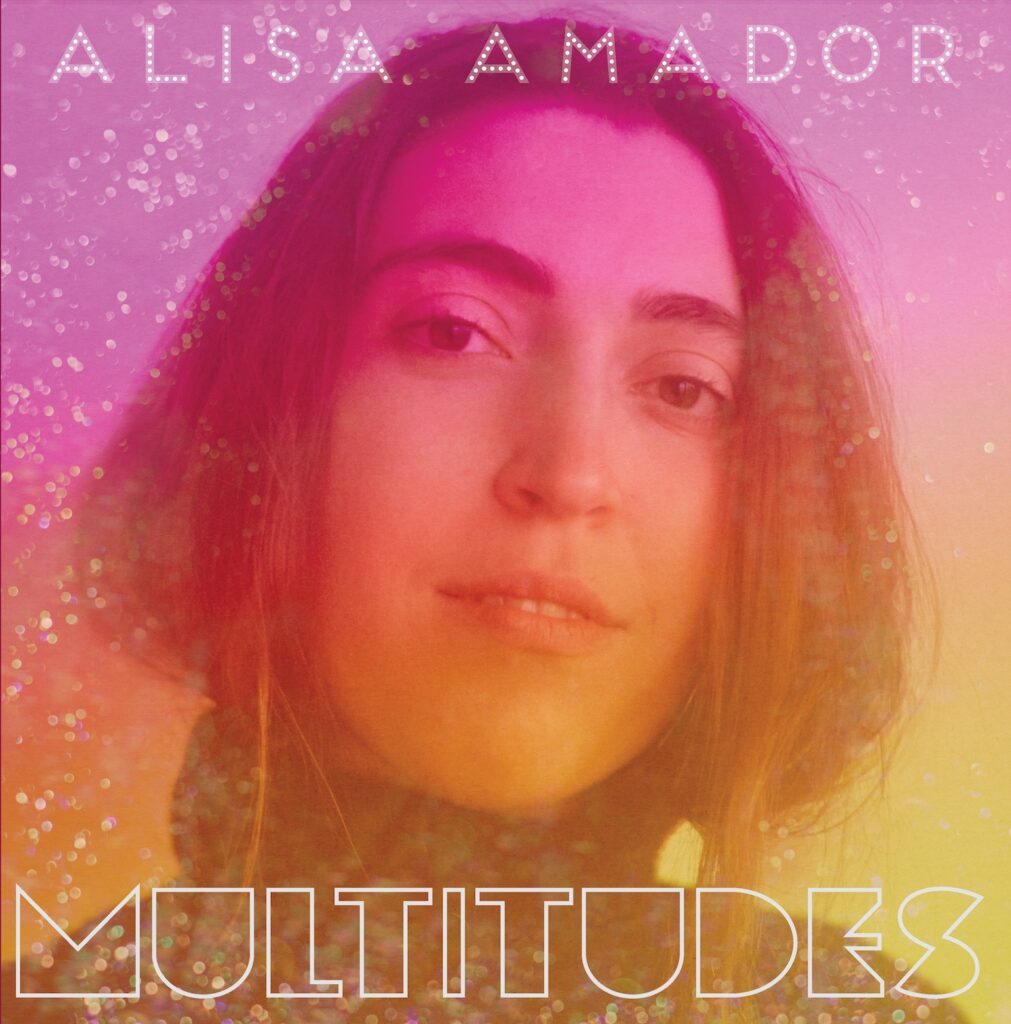
Though it might be her debut record, Amador is no stranger to the spotlight. Having won the NPR Tiny Desk Concert in 2022, this modern-day troubadour has spent the past couple of years playing to audiences around the U.S. Having almost given up her career in music just mere moments before hopping on the world-altering call with NPR Tiny Desk Concert mastermind, Bob Boilen, Amador is quick to credit the success of her comeback to a timely message from the universe. Ever so humble, Amador is perhaps less inclined to say what we as listeners know won her NPR’s highest honor: her undeniable talent, poise and effortless grace.
It is clear when listening to Amador’s crystal clear vocals and the steadily thrumming guitar in “Milonga Accidental” — the song that won Amador a spot behind NPR’s tiniest desk — that we are dealing with something and someone special. Multitudes is further confirmation of this musical gift; proof of Amador’s ever-flourishing artistry.
As the track began this journey back into her artist project, it is only fitting for “Milonga Accidental” to appear on the record that marks another sort of new beginning for Amador’s career. Only this time, the track serves as a bookend to Multitudes with its partner song of sorts, “Extraño.” Normally sung back to back with “Extraño” bleeding into “Milonga Accidental,” the former now appears as the first track, with the latter neatly wrapping up the record.
“I felt like ‘Extraño,’ in the case of how it felt in the studio and how the recording came out set the tone for the whole arc of the record,” Amador explains. “Identity and wondering where I fit in the world is definitely a big thread through everything that I write and live. To start and end the album with two songs in Spanish that have to do with that grappling of ‘Where do I belong? What am I doing here?’ felt really right and with the harmonies it felt like a good way to draw people in.”
Identity is something Amador has grappled with for the majority of her life. As a proud Latina raised in a bilingual household in Boston, Massachusetts, she is no stranger to having to code-switch in order to assimilate into American society and adhere to the systems that be (“The problem is the system, I tell you! It’s always the system,” she maybe only half-jokingly jokes). Determined to share this facet of her identity that is a crucial aspect of her and her community’s lived experience, Amador proudly sings in both Spanish and English.
Unwilling to sacrifice who she is for the sake of her career in the music industry, Amador asserts, “I had been told in the past that singing in Spanish would maybe not be productive for my career. I’m so glad I stopped believing that, because the most vulnerable songs are often in Spanish and they are often the ones that reach people the most directly. The songs that I was most afraid to share — the ones about feeling like I don’t fit in — are the ones that reach people so immediately.”
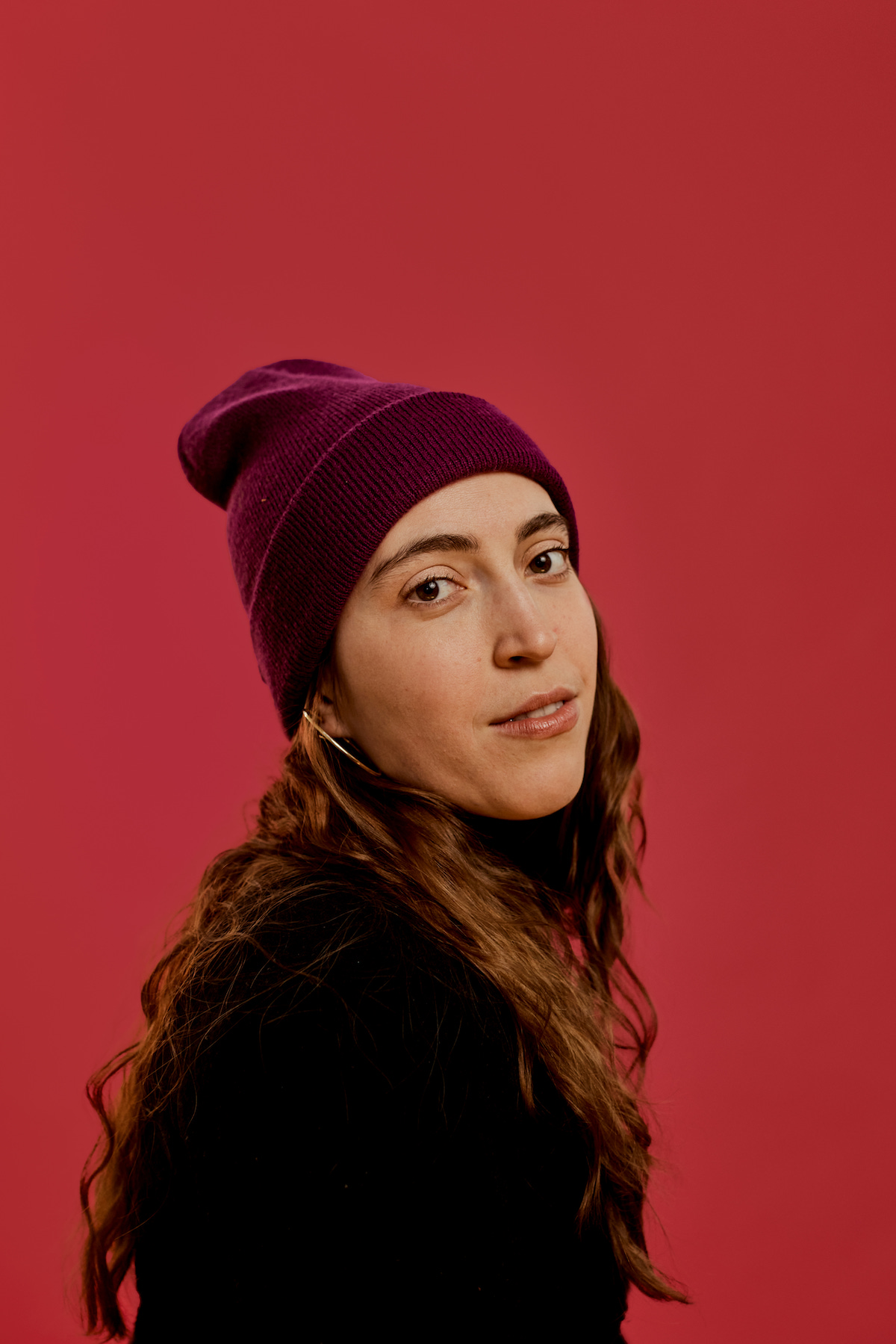
From the get-go, Multitudes carries ample lessons learned from a life in the midst of being lived; it is the culmination of years of learning transposed into soul-stirring melodies.
It is with tears in eyes that one listens to Amador — tears of happiness, sorrow and of the feeling of having one’s experiences on this earth be truly recognized and understood. Amador surrenders to madness, eloquently capturing the duality of fiercely loving life and hating some aspects of it at the same time.
But this is no morose dirge or woeful pity party — Amador does not dwell in doom and gloom, but rather reflects upon the hard lessons and less-than-optimal experiences she has faced within this lifetime. Using these experiences as ample fodder for creation, parsing through somber emotions and turning them into something altogether pleasing to the ear and soothing to the heart. Amador is unafraid to acknowledge the fact that even in her lowest moments, she is still unabashedly herself — and that’s something to be proud of in and of itself.
Part of this recognition of the self came in the form of discarding perfectionism — “[Music] really doesn’t have to be so complicated and it definitely can’t be perfect because I tried to be imperfect and it broke me. I cannot go on with perfectionism,” she states, laughing. The keyword in this endeavor for Amador and her creative partners was “wonder.” Amador did not follow a strict musical ‘recipe,’ relying more on instinct and a sense of childlike play to guide the process of making this record.
“Something really liberating about the process of making this album that I’m still trying to internalize and believe is that things don’t actually need to be perfect to reach people or to be memorable,” Amador expresses.
Oftentimes, the most moving art is not the most technically sound or music theory-filled, but that which can be felt from within.
As they say, you cannot fake a vibe — and trust, if there’s one thing Alisa Amador knows how to do, it’s curate a vibe with expertise.
To be a musician in today’s music industry is to (perhaps begrudgingly) embrace the ebb and flow of a release cycle — with extra emphasis on the “ebb” part of the exchange. Even with the trials and tribulations that come with making headway as an artist in this day and age, Amador bears each one with endless strength. Of course, there is some responsibility that lands on listeners as well to do some of the heavy lifting for the artists that provide them with a soundtrack to everyday life.
“I invite everyone who supports artists and believes in the arts to have an even more active curiosity around what an artist’s day to day life is like and what managing their career is like, because there’s a lot you don’t know,” Amador encourages. “The other 20 to 23 hours of the day that you’re not onstage performing that day are filled with things that some people could probably never imagine are a part of the job.”
More often than not, musicians’ struggles are overshadowed by the glamorous nature of the music industry itself. One might ask themself: if musicians get to spend all day in the studio or up onstage singing and playing music with smiles on their faces — what could possibly be wrong with their position? The answer is, in short: Lots of things.
Amador specifically has had to navigate various situations where she is “both honored and grateful to have this opportunity, but it also is costing me financially, so I’m paying to work full time.” At times, Amador does not even break even or make a profit, but is instead left fishing money out of her own pockets in order to have the opportunity to perform before an audience.
Despite the challenges Amador has faced thus far, she remains grateful in everything that she does and for all of the opportunities that she has received. Wielding her empathy as a tool for sincere interpersonal connection, her aptitude for authenticity is a beacon of hope amidst an industry so focused on gauging success by numbers and metrics.
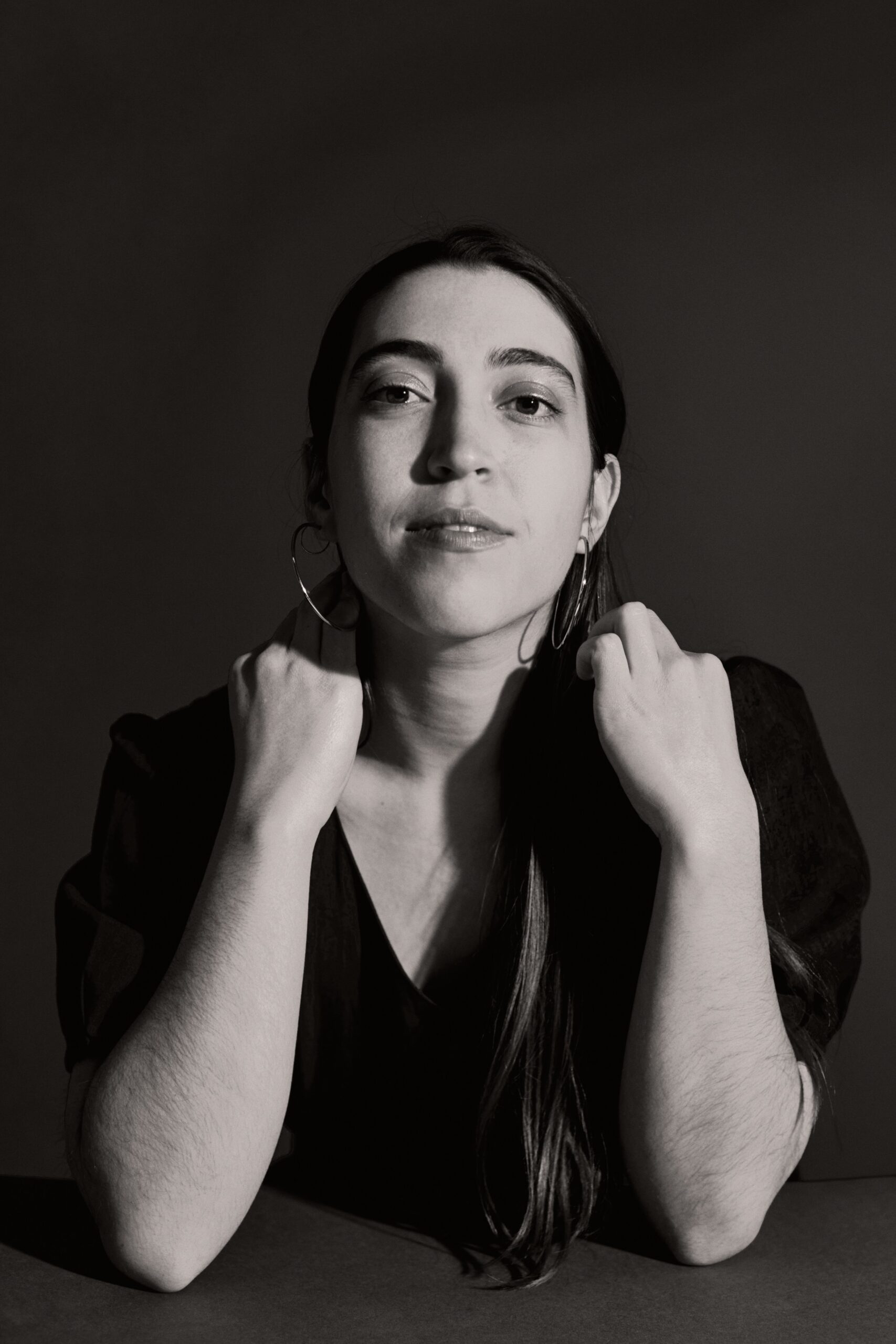
Even in the midst of its most devastating moments, Multitudes comes informed by a sense of pure play and whimsy.
As the title of the project suggests, Alisa Amador does indeed contain multitudes — and what a joy it is to witness and love all of them.
“There are a million different lives I could live, but I will be here now / There are a million different tries I could give, but I will be here now,” Amador sings in “A Million Ways,” and boy, are we glad that she is here now to share her music with us.
Continue reading below to learn more about Alisa Amador’s continually evolving relationship with music, the importance of setting boundaries and owning your identity in the music industry and the sense of wonder that went into her debut record Multitudes, out NOW!
— —
:: stream/purchase Multitudes here ::
:: connect with Alisa Amador here ::
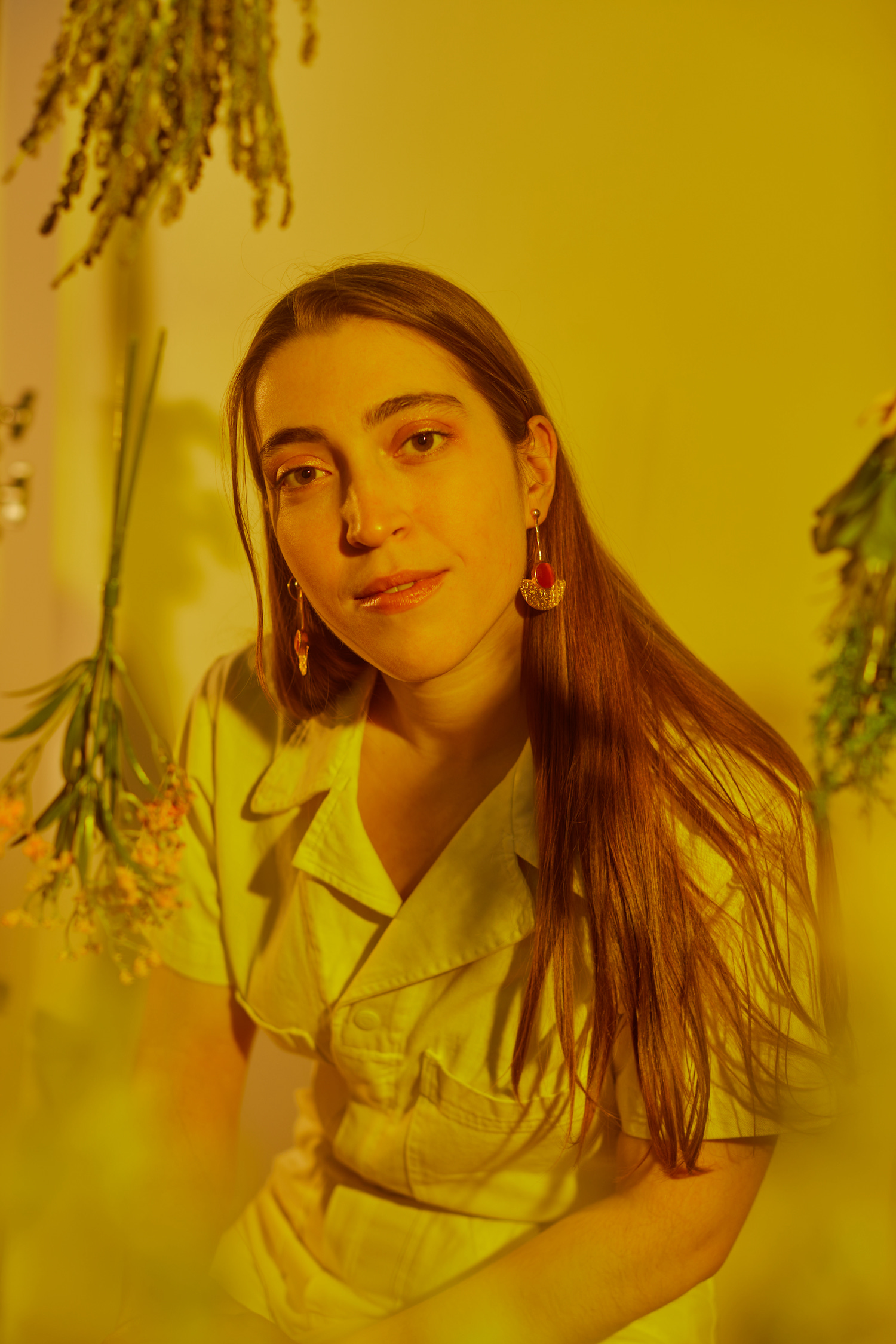
A CONVERSATION WITH ALISA AMADOR

Atwood Magazine: I want to quickly start by saying that I’ve been wanting to interview you since my freshman year of College in Boston. I interned at Club Passim in my freshman year and Abby shared your music with me and I was immediately hooked. I saw your solo show at Passim in February so when this interview opportunity came across my email I was like, “My time has come!” So thank you so much for taking the time to chat with me today.
Alisa Amador: I’m so so honored, that’s amazing. Thank you for working at Passim.
Of course! That’s home, I love that place.
Alisa Amador: It really is. I’m so grateful that they exist.
I want to start by asking about your time as a musician. You've been playing music for the majority of your life, whether it's with your parents in Sol Y Canto or in your own solo career. Besides being your full time job, what keeps you coming back to creating music? Why does it continue to be such a meaningful act for you?
Alisa Amador: My relationship with music is definitely evolving the more I work full time as a musician. I’ve actually been really trying to go back to approaching music from a place of almost childlike joy and wonder and curiosity. If I didn’t start to re-approach music in that way I don’t know if I would still be a musician right now, because it really is such an intense and really challenging profession and industry. When I started recording this record, I was still experiencing some really intense writer’s block, and had been for several years. So I sat down one day and was like, “How will I ever write songs again?” And I asked myself, “How did I ever write songs to begin with?” I realized that it really had to do with not judging myself and approaching songwriting from a place of no judgment, just curiosity and wonder and a need to lean on something to help process whatever was going on in life. That’s what is making it possible for me to keep going, is to keep relearning how to be a child about it.
The word ''wonder'' is a really good word to use, because I feel like a lot of musicians end up losing that enchantment with making music because they can get lost in the industry and streaming numbers and things like that. Wonder is such a good thing to come back to in order to take a step back and be like, ''Oh, this is my work, and I love it.'' I'm so happy that you've tapped into that.
Alisa Amador: Thank you, that means a lot.
Of course! Your artist bio refers to you as this ''artist reborn.'' You kind of touched upon this, but what has this new era of artistry after winning the Tiny Desk contest in 2022, meant to you and what characteristics do you have now that you didn't have maybe five years ago or so.
Alisa Amador: The last few years have been a process of learning how to listen to myself and understand what it is that I want, need, believe in and feel is important — even when it goes against what other people in the room are saying. That’s been the big learning process since winning the NPR Tiny Desk contest and realizing that if I’m going to do this job full time, it needs to be on my terms and I need to treat myself as a human being. Because that hasn’t been happening. Now, fast forward to a couple of years since starting to write again and recording and putting out a record and everything, I can say that I’ve definitely grown in terms of understanding myself and knowing how to say what I think even when it makes other people uncomfortable. But I definitely still have a long way to go.
It's a learning process. And I feel like having that thought in your brain just to start is a really good way to kind of just keep it consistent, so that's great.
Alisa Amador: Thanks! One of my friends, who’s an incredible songwriter as well, told me that she tries to disappoint somebody every day. It really blew my mind because it takes away this concept — especially when you’re socialized as a woman — of you having to always keep people comfortable. So the idea of making someone uncomfortable every day is actually a really powerful thing to try to do, especially as a woman in the music industry. You have to really see that as a superpower and not as a taboo. When you listen to yourself, you probably inherently will make someone uncomfortable. That’s not the problem there. The problem is the system, I tell you! It’s always the system.
The system will get you! There's such power to be found in claiming your worth and space by making someone uncomfortable or setting a boundary. I remember at your solo show in February, you presented your friend with an incredible birthday gift, a song that you wrote for her. And then I remember you brought your mom onstage to sing ''La Vie en Rose.'' Can you talk a little bit about the role of community in your life and the love that we find within our circles and what it means to you?
Alisa Amador: Thank you for asking that and for remembering that. Yesterday, I was in an interview as well, and they asked me what kept me going. I’ve been thinking about that a lot, because it’s not like the industry can keep anyone. I feel like the music industry is designed to break you or to try to suspend you from your humanity so that you can keep working. My answer is definitely not the job or the industry. What keeps me going is the people I love and my friends and my Mom and my Dad and my twin brother and time with people who I feel safe with. It honestly feels like magic. There can be so much going on in your life that’s so hard and then you spend time with someone you love and suddenly everything that felt unbearable is manageable and you feel lighter and you feel like life is still beautiful. As cheesy as it may sound, when you have people you love and you feel safe with, that’s such a superpower. I love my friends and I love my family — I’m glad it came across in the show.
Definitely! That whole room had such a good community in those moments. Especially since you are from the Boston area, Passim is such a hub for folk music but also the community so I think it really encapsulates how your music has a really amazing ability to bring people together in this warm, safe space.
Alisa Amador: Thank you. Live music is one of the last gathering spaces that we have. Pre-technology boom, there were just so many spaces, like public parks and events and the marketplace and whatever else. Just these spaces where people would gather and experience things together. Concerts are one of the last surviving spaces like that. I take it really seriously when I put shows together, I really put a lot of love into how to guide the show through all of these different emotions and facilitate a healing space for people. I want people to feel really safe to be themselves but also really seen and heard, even if they’re the ones doing the watching and the listening. I think that the album also achieves that and that was one of the guiding factors in how I laid out the tracks and the flow between songs and also the production. I really want this record to be a gathering space, even if it’s sonic and more in your imagination. I want people to feel safe and seen.
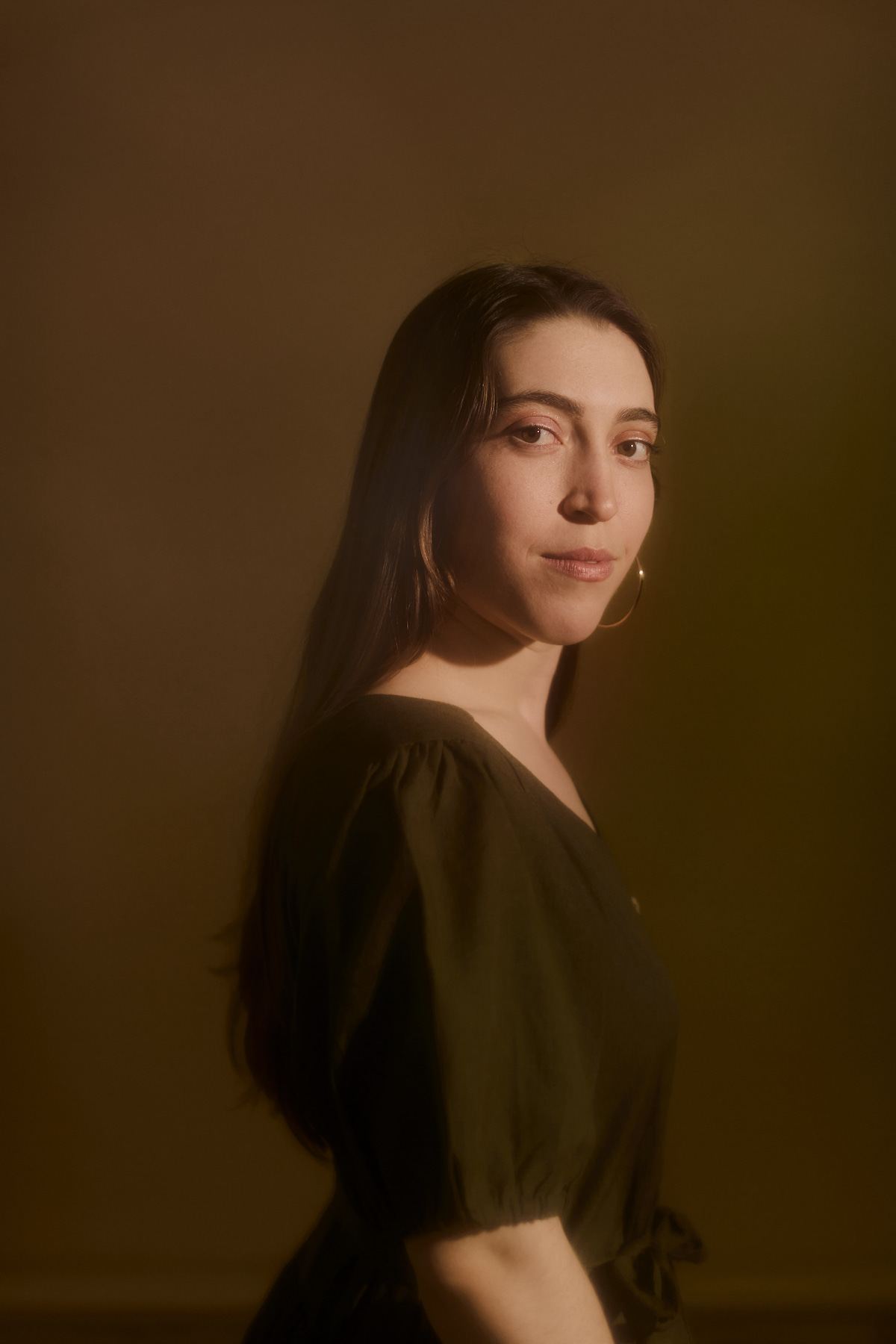
I think you achieve that. That was a perfect segue into my next question, which is about actually the album. As the title suggests, this record contains multitudes – joy, devastation, grief, transformation, what have you — the gamut of emotions. What kind of multitudes are you specifically feeling during these anticipatory days toward the release of the record?
Alisa Amador: I’m trying to learn how to manage being a musician in the era of social media and how to both share all of this media and try to connect with people as much as possible. But also put walls around my heart so that I won’t get hurt. That’s something I’ve been really curious about as the release gets closer and closer, really trying to focus more on sharing in a really authentic and caring way. Everything that I share, I put love and care into. That being said, I don’t put love and care into paying attention to the statistics of my media — that has been really important to me, to not pay to not pay close attention to, or feel emotionally connected to streaming numbers or statistics or likes, things like that, because I’m just too sensitive and I feel like it could sweep me away and give me a false sense that my music is not good or not worthy or all that stuff. I’m constantly battling that and trying to stay above the noise — or at least just like away from the noise.
It’s actually been really interesting, because I’m not totally sure where to draw the line of my emotional boundaries. Today we got the first album review. It was so beautiful and I don’t know this journalist who listened to my record and said these things but they are so incredibly beautiful. I maybe went too far with the guarding myself because I was so surprised to see such an incredibly glowing review of this record, because it’s just been so long that I’ve had this record and been in the process of releasing it. It’s almost like when you say the same word 55 times; you start to wonder whether it’s even a word. I kind of feel that way about a record release. You’ve been talking about the record for so so long and you’ve been hypothetically releasing it for so long that it starts to feel like maybe it isn’t even real. But it really is real. I’m definitely straddling between feeling and guarding my heart around how vulnerable it is to put art out into the world.
That's a really wise decision. The music industry is based a lot on metrics, but as you said, the metrics do not define how listeners are going to interact and feel with the music. I know when I listened to your music and attended your live show, I was like, ''Oh my gosh, this woman.'' Every time I watch a live performance of yours I feel this way. The numbers are great, or maybe not so great sometimes — whatever numbers may be — but the meaning and the significance of the listeners behind the numbers is something that you can always think about and have in your heart. I don't know if that helps.
Alisa Amador: It does help, I really needed to hear that today. Thank you.
Of course. My next question is about the bookends of the record. You have ''Extraño'' and ''Milonga Accidental,'' two songs that you usually play back to back live. What inspired the decision to put these two tracks at the beginning and the end, rather than smushed together?
Alisa Amador: Oh wow, it’s so special to have a journalist who’s been to a live concert interviewing me. It’s funny because a live concert and an album have these differences and these similarities, right? I want there to be an arc. I want people to feel carried through. I want them to feel safe enough to feel more vulnerable feelings. I’m not going to start right off with a song about death, necessarily — although I’m sure there are many people who have done that and it worked. It just didn’t feel right in my situation. But it might come later on in the album and then flow into another song about learning how to be good to yourself or learning how to accept yourself or loving someone and learning how to love.
There’s a whole flow in the live concert and a whole flow in an album and they’re different. I felt like “Extraño,” in the case of how it felt in the studio and how the recording came out set the tone for the whole arc of the record. Identity and wondering where I fit in the world is definitely a big thread through everything that I write and live. To start and end the album with two songs in Spanish that have to do with that grappling of “Where do I belong? What am I doing here?” felt really right and with the harmonies it felt like a good way to draw people in. Right after that we go into like a big pop punk pop number. Within the first five minutes of the album to be like, “We don’t know what genre this is. Everybody have fun. You’re safe!”
It's like fun whiplash. It's very soothing and then it's right into the song where you scream and are just jumping around like in the music video. I think it's such an amalgamation of different sides — multitudes, as you say. It's such a wonderful collection of different fragments of who you are and your experiences. Speaking of different fragments and experiences, this is a collaborative work with so many different people and artists. How do you navigate through the process of working with so many different creatives and how has that kind of culminated in the songs in this project?
Alisa Amador: I’m definitely still learning how to navigate creative relationships. I learned a lot on this record, because there were so many people involved and they’re all incredible artists and musicians. I especially loved working with people who are so interested in telling the story of the song, more than necessarily in what they or I would call our strengths musically. And that was really exciting to me. For example, Daniel Radin, who I worked on the record with here in the Boston area, we spent so much time playing it became this time in his basement studio of almost childlike playing with the keyboards and whatever instruments were in the room. Neither of us are particularly legendary musicians to say the least — we’re both like solid, but we’re mostly curious and definitely neither of us are pianists and we did a lot of piano parts that were just like, what key is it in and then we would just transpose the keyboard into that key so that everything was in the shape of the key of C because it’s the easiest one to play.
I loved that sense of play in collaboration; to almost go back to being a kid like I was saying earlier, and to really not see this as something that should be perfect or precious and just really think about what the feeling of this song is and what the story of the song is and how we can honor that — even if it doesn’t mean playing something really good or that sounds really nice. “Love Hate Song” is a great example of that. The guitar solo in the middle that is so chaotic and wonderful is Daniel and I both playing guitar solos and then editing them together because we pieced them together visually and were like “This kind of looks cool.” Then we were like, “How does this sound?” and we could play it and shift it around. We laughed so much making that guitar solo, each of us playing a bunch of chaotic guitar solos and then putting them both together. I loved the joy and the silliness that pervaded that collaboration.
It's that feeling of wonder yet again that pervades the whole record. I love the guitar story, that's great!
Alisa Amador: Something really liberating about the process of making this album that I’m still trying to internalize and believe is that things don’t actually need to be perfect to reach people or to be memorable. Sometimes the most perfect music is the music that moves you the least. It’s really about letting go of perfection and approaching music from a place of feeling and curiosity and what is fun to do and how it sounds and if it helps tell the story — just going from there. It really doesn’t have to be so complicated and it definitely can’t be perfect because I tried to be imperfect and it broke me. I cannot go on with the perfectionism.
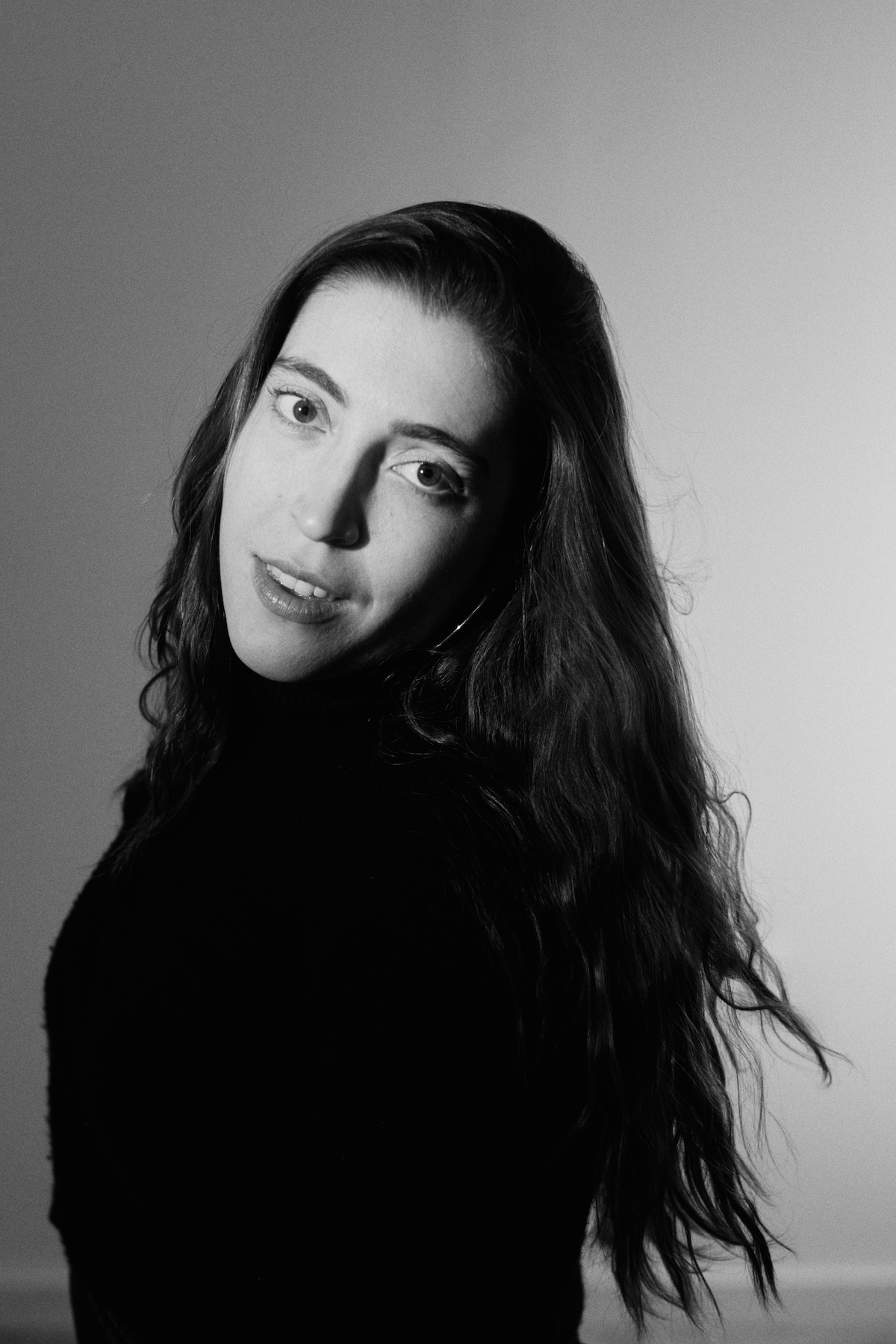
Perfectionism is a beast; it'll get you. In the opposite realm. I'm really intrigued by the track ''Still Life.'' We've been talking about how the music industry is really tumultuous and how it can really pull you in different ways at the same time. It feels like you have to be in almost constant movement to stay afloat in it. In these rare moments of stillness, how do you kind of embrace it? How do you relax a little bit and give your mind a break from the incessant wants and needs of the industry?
Alisa Amador: It wasn’t until I had that time off the road that I realized how much I needed it. A lot of musicians had that realization during the pandemic. Now I try to really cultivate stillness in my life, so that I can have moments to just recover — the body needs sleep. The body does actually need stillness sometimes. We live in a culture that does not necessarily acknowledge that or leave space for that, so you have to cut that space out for yourself. I try to walk a lot to where I need to be — even though that’s not technically stillness, there’s stillness in my brain, I’m not just racing. Taking walks has been really good for me. And reading! I really love reading and I thought I didn’t and then I just realized that I had just been in school for so long and that school was hard. Now I actually love reading and try to make moments happen where I can just read a book even for one minute. That’s been a wonderful gift for me, reading feminist novels, adventure novels, with women pirates. I’m just feeling so much more like a human, more focused on my humanity than on my productivity.
That's a quote right there. I love that. I can tell that you read by the really big bookshelf behind you.
Alisa Amador: This is a combined collection with me and my partner, but my partner definitely has maybe 1/3 and I am guilty of the rest.I haven’t necessarily read all those books, though. Let’s be real.
That’s been a wonderful gift for me, reading feminist novels, adventure novels, with women pirates. I’m just feeling so much more like a human, more focused on my humanity than on my productivity.
One day! There's always time. I remember hearing ''A Million Ways'' for the first time at your solo show in February. I find it amazing how so much love is captured and expressed within less than a minute. Can you just share a little bit about that track? I adore it. It's so beautiful.
Alisa Amador: That song is this little snapshot of how I feel about my loved ones and how I feel about my partner, Jamie. When I started with it, I was just sitting on the couch that’s behind me and playing the guitar. I never actually necessarily know what I’m going to write about, so I just came up with the “There’s there’s a million different lives I could live but I will be here now” line, and it accidentally became this song about how “When I look in your eyes I could swim in the golden brown / But I can I can see that you’re sticking around” — how profound that is to find someone you love who you can really tell wants to wants to live life around you.
I never really expected to find that in my life. To find someone who I can feel so safe with, there’s something so special about that, but it’s very hard to put into words. I came up with and set this rule for myself once this structure kind of took form that I wanted to, with each verse, change the fewest amount of words to say something different. So: “When I look in your eyes, I can swim in the golden brown / When I look in your eyes, I can see that you’re sticking around” — land the first verses “There are a million different lives” and “There are a million different tries.” It says a lot but it’s actually just one to three words that are being changed. Something about that limitation almost says more or can contain the feeling in fewer words.
I feel like it's kind of like an answer to ''Quedar'' from earlier on in the record. In ''Quedar,'' you ask the person to tell you that they'll stay and want to be with you forever and this is the realization of ''Oh, you do!'' It's like a nice end to the chapter.
Alisa Amador: Oh my god, I never thought of that.
That was a journalism moment.
Alisa Amador: Yeah, you have unlocked a truth.
In a previous interview, you stated that the meaning of ''Milonga Accidental'' has changed from feeling disheartened by feeling as though you are out of place to now a celebration of being different and the beauty that comes with embracing your own identity. What advice do you have for other people who may have felt or currently feel out of place in their lives in some way?
Alisa Amador: I just want to say that you’re not alone and that you’re not wrong unless you are. So much pain is generated by toxic systems and not actually ever by your existence. I feel so strongly about that, because I think so many people suffer in silence feeling like they are inherently wrong by existing and it couldn’t be further from the truth. What’s inherently wrong is that there are narratives in the way that we live and the way we move through the world, that say that there’s something wrong with how you are. I feel so deeply for the people who are suffering and trying to hide parts of themselves. I’ve been part of that and I have done that and I’m still unlearning that.
There’s something very profound about starting to share these songs about identity live. I was very hesitant to share these songs; they felt too vulnerable. I had been told in the past that singing in Spanish would maybe not be productive for my career. I’m so glad I stopped believing that, because the most vulnerable songs are often in Spanish and they are often the ones that reach people the most directly. The songs that I was most afraid to share — the ones about feeling like I don’t fit in — are the ones that reach people so immediately. It’s funny how the things that can feel so so personal, are actually experienced by everyone in some way. So even even the person who might label themselves as the most average person in America or whatever, can relate to the feeling of being out of place and feeling like they don’t fit in. It’s been really amazing to share these songs and realize things like, “Oh, I’m really not alone.”
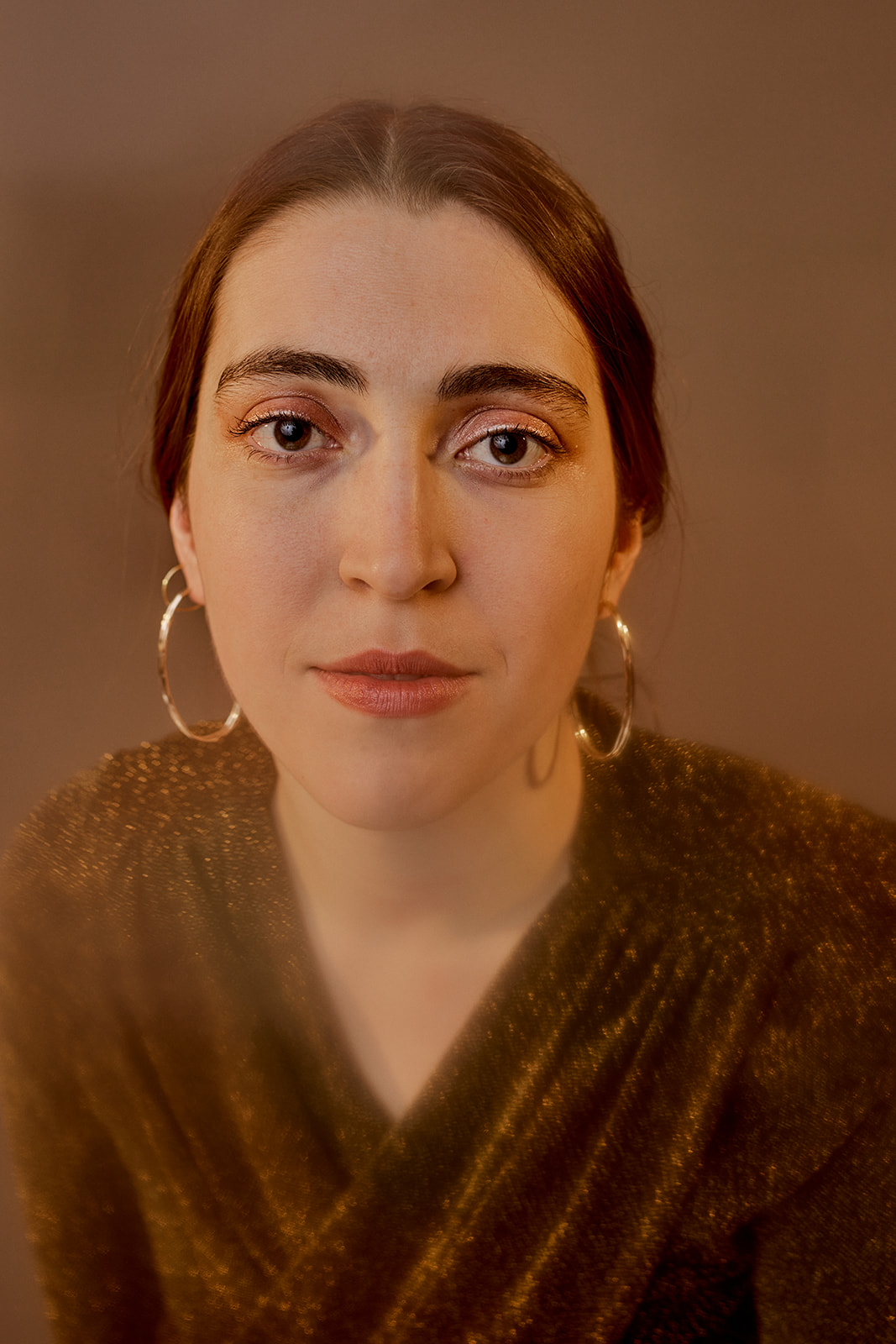
Thank you for remaining authentic to who you are. It saddens me to think that some in the industry still try to quell artists' identities. It’s a shame. Artists are just essential for society and the well being of communities all around the world. I want to know from you personally, how can we support artists better?
Alisa Amador: Thank you so much for asking that. I invite everyone who supports artists and believes in the arts to have an even more active curiosity around what an artist’s day to day life is like and what managing their career is like, because there’s a lot you don’t know. The other 20 to 23 hours of the day that you’re not onstage performing that day are filled with things that some people could probably never imagine are a part of the job. Also the financial expectations of independent artists are pretty brutal. I still haven’t figured out how to make this job financially sustainable. So people who have the means you are always welcome to have an active curiosity about how you can support artists because it’s definitely not a financially sustainable career path for most artists.
It’s actually very common for full time artists to be in debt from their full time career or to have to take out loans in order to work. There’s a lot of pretty sobering financial challenges to doing a job in the arts and I think that there’s a lot of stigma around talking about money that I would love to go away. There’s also a lot of stigma around how challenging it is to work in this field, and that even what could be seen on the outside is a success could be in the private sphere, a really challenging thing. I’m often navigating these situations where I’m both honored and grateful to have this opportunity, but it also is costing me, so I’m paying to work full time. I encourage people to have a more active curiosity around that or even just the awareness that that situation exists and that most of the time an artist would probably love your support — be help with running the merch table or help with packing up or or financial help with affording the costs of the job. I’m definitely in a spot that’s tough and I know that other artists can relate.
A lot definitely goes unseen and unheard because the music business is glamorous at face value. Thank you for sharing all of that. I really loved hearing about all the ways that we can support and just kind of lift you up and elevate you because you lift us up and elevate like us, so it's the least that listeners can do for you. We're at my last question! It's super easy. I like to end all of my interviews on a happy note, so: what has been giving you joy lately? It can be anything, not even music related.
Alisa Amador: It’s this spring. I know it’s very simple, but this sunshine has been bringing me so much joy in spending time outside with friends. I recently went to a show of my friend Rich Hinman’s show at the Lizard Lounge and just hearing incredible live music and knowing that I’m able to go to a show because I’m not on tour right now because I planned ahead to have time off. I was so grateful to just be so inspired. I’ve been getting to go to a lot of shows and be really inspired lately. This is gonna sound so cheesy, but every moment that I’m on the red line or the one bus and it’s going over the bridge over the Charles River — pure joy, every single time since I was a little child.
— —
:: stream/purchase Multitudes here ::
:: connect with Alisa Amador here ::
— — — —

Connect to Alisa Amador on
Facebook, Twitter, TikTok, Instagram
Discover new music on Atwood Magazine
© Sasha Pedro
Multitudes
an album by Alisa Amador

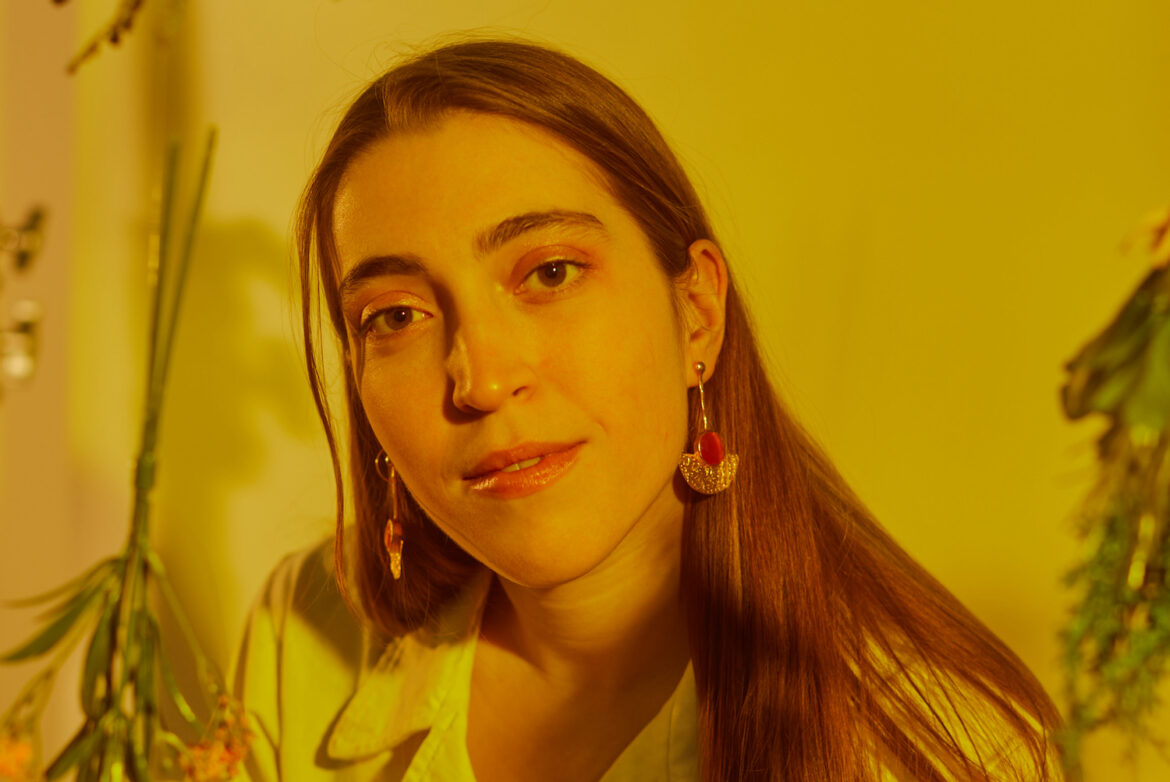
 © Sasha Pedro
© Sasha Pedro

